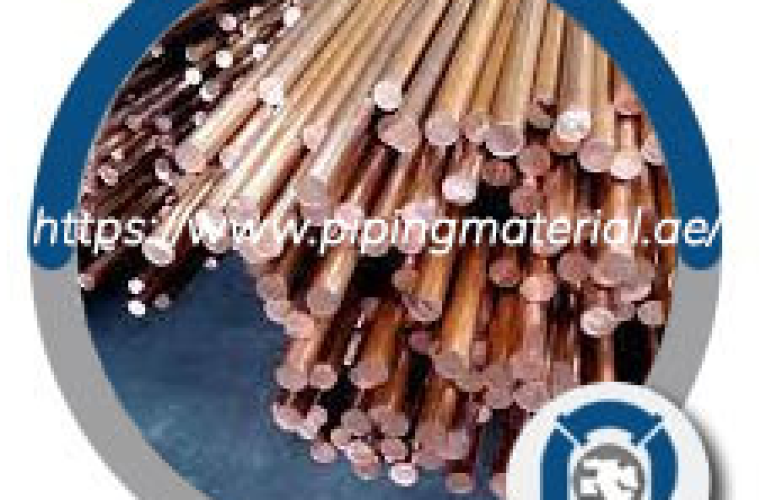
Copper nickel round bar is a multipurpose material that is commonly used in a variety of applications. It is strong and durable, making it suitable for use in construction, marine, and industrial settings. Copper nickel round bar is also used in the production of plumbing fixtures, heat exchangers, condensers, and other high-temperature equipment. It is an excellent conductor of heat, making it ideal for heat transfer applications, electrical components, and other applications that require high conductivity. Additionally, it can be used for ornamental purposes as well, providing a beautiful and long-lasting finish.
Is copper nickel bar valuable?
Copper nickel bars are highly valuable due to the combination of copper and nickel, which is often referred to as “cupronickel”. This alloy is extremely corrosion-resistant, making it an ideal material for coins and other items that must be durable. Additionally, copper nickel bars are also very sought after due to the fact that both copper and nickel are considered valuable commodities in their own right. As a result, copper nickel bars often have a higher market value than other alloys. In fact, in some markets, copper nickel bars can be worth more than gold or silver.
Is nickel alloy round bar strong?
Nickel alloy round bar is a strong choice for a variety of engineering applications due to its high strength and durability. It is comprised of an alloy of nickel and other metals, such as chromium, manganese, and molybdenum. This combination of metals creates a strong and wear-resistant material which is often used in applications such as aerospace engineering, chemical processing, and marine engineering. Nickel alloy round bar is also resistant to corrosion and is able to maintain its strength and integrity even at high temperatures.
Does nickel round bar rust easily?
Nickel round bar is a type of metal alloy composed of nickel and other elements such as iron, copper, and chromium. Nickel is known for its corrosion resistance, making it a popular choice for many industrial applications. However, the corrosion resistance of nickel alloy round bar depends on the exact composition of the alloy and the environment in which it is exposed. In general, nickel alloys are highly resistant to oxidation and will not rust in most environments.
Nickel round bar can be exposed to water, acidic solutions, and other corrosive materials without rusting. However, when exposed to salt water, high humidity, and other aggressive environments, nickel alloys can corrode and form rust. To prevent corrosion, nickel round bar should be coated with a protective coating such as chromium oxide or a painted coating. Additionally, regular maintenance and cleaning can help to reduce the risk of corrosion and rust formation.
How much is the cupro nickel round bar import duty in Oman?
The import duty for cupro nickel round bars is 5%. This is applicable for all cupro nickel round bars that are imported into the country. Additionally, the importer is required to pay any Value Added Tax (VAT) that may be applicable, depending on the type of product imported. The Omani Customs Law also states that any import duty that is imposed must be paid before the goods can be cleared through customs.
In addition to the import duty, importers of cupro nickel round bars must also pay a customs clearance fee of 1.5% of the total value of the imported goods. This is in addition to any other applicable fees or taxes. The customs clearance fee is not refundable, and must be paid in order to clear the goods through customs. Importers also must provide relevant documentation and other requirements in order to be able to clear their goods through customs.
Why do copper nickel rod production costs in China differ from those in India?
Chinese producers have a larger range of options for sourcing materials, which makes production competitive. Labor costs in China are typically lower than in India, giving producers yet another advantage. Furthermore, China has stronger infrastructure than India, allowing for a more efficient transportation of materials and products. This has been particularly beneficial for the production of copper nickel rods, since the transportation of such materials requires complex equipment. Finally, Chinese producers are able to benefit from economies of scale due to the country’s size. This means that they may be able to purchase materials in bulk at a lower price, reducing their overall production costs.
In comparison, India’s production costs are higher due to a variety of factors. Firstly, India’s access to raw materials is more limited than China’s, making it harder to source materials at a competitive price. Secondly, labor costs in India are higher than in China, which adds to the cost of production. Additionally, India’s infrastructure is weaker than China’s, resulting in higher transportation costs for materials and products. Finally, India’s size is much smaller than China’s, so producers in India are unable to take advantage of economies of scale as effectively as Chinese producers. All of these factors contribute to the difference in copper nickel rod production costs between China and India.

